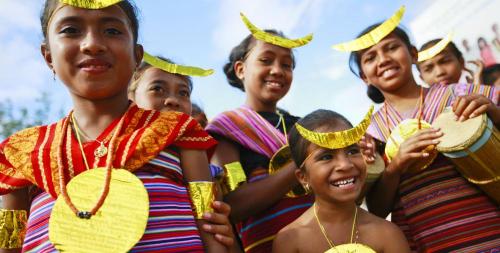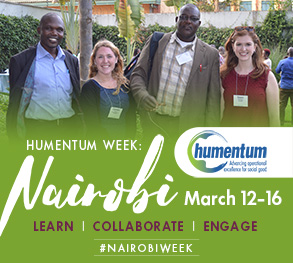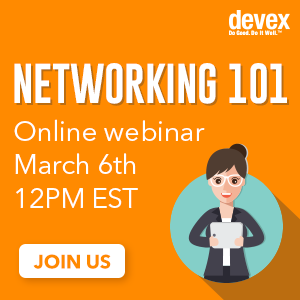
Here some takeaways from https://www.devex.com/news/takeaways-from-the-2018-australasian-aid-conf...
CANBERRA — The 2018 Australasian Aid Conference, hosted by the Development Policy Centre and The Asia Foundation in Canberra on Feb. 13 and 14, brought together development and humanitarian researchers and professionals to discuss and debate the current state of aid.
From understanding economic conditions that lead to government instability to health, gender, and the modern objective of Australian and Asian donors, here are the key takeaways from two days of insightful discussion.
In targeting poverty, we can’t ignore the strugglers
Poverty is one of the most important development challenges donors and NGOs aim to address — so much so that ending poverty is goal #1 in the Sustainable Development Goals. But Nancy Birdsall, president emeritus of the Center for Global Development, said it is also crucial to reach “strugglers,” those who are above the $1.90 poverty line but at risk of falling below it.
Strugglers, she explained, earn between $4 and $10 per day. They have a highly volatile economic situation and are easily shaken by changes in household conditions or unexpected costs, making them deeply vulnerable.
By 2030, it is estimated that while less than 5 percent of the population on the developing world will be living in poverty. But 60 percent will be classed as strugglers. The struggler population is not set to reduce.
See more Devex coverage of Australian aid:
► Penny Wong on Labor vision for Australian aid
► At government hearings, Australian NGOs get harsh reception
► Australia has released its new foreign policy white paper — what now for NGOs?
► In Australia, new bill has charities fearing a war on advocacy
► Politics and development: Insights from dialogues in Canberra
The importance of focusing on strugglers, Birdsall explained, was their sheer numbers. For a number of countries such as Brazil, the median voter is a struggler. In Indonesia, the median voter is living in poverty. Not only does this create development challenges for health, education, and more, it creates economic and political instability. If governments are not able to raise money from taxes, they cannot deliver critical services that can improve the lives of these people. And decisions of government to increase costs of services can easily see their population fall back into poverty.
Birdsall urged for new thinking to enable inclusive growth and better share of wealth — with think tanks based in the developing world, an important tool to gain new insights and perspectives from people directly affected by social and economic inequality.
Insights into partnerships with Asia’s development donors
Day one of the conference provided an opportunity to hear from NGOs and development donors in China, India, Japan, and Korea as part of a panel to understand their governments’ international development objectives and explore how they are engaging partners to support scale and impact.
China and India have faced challenges in building up their international development programs while communities at home struggle with development challenges. Supriya Roychoudhury, an analyst with the Indian Development Cooperation Research, told the audience that in some areas of India, domestic poverty was so dire that it was hard to explain why the country has an international development program. In fact, many were not aware it exists at all.
In South Korea, public frustration at focusing on foreign poor while there remains poverty at home is slowly lessening. Jin-kyung Kim, from the Civil Society Cooperation Team with the Korean International Cooperation Agency, said the organization tries to focus on highlighting aid effectiveness rather than the amount of money spent overseas. And she explained NGOs were an important partner in educating the public and framing the discussion at home.
NGOs as partners was an important part of the discussion, with panelists explaining the different relationships that exist.
Haoming Huang, vice president of the China Association for NGO Cooperation, explained that opportunities were increasing for NGOs to become part of the discussion, with funding for NGO programs becoming more accessible.
For India, Roychoudhury said NGOs were taking on an “important role in knowledge production” associated with the country’s international development program.
But in Japan, partnerships with NGOs remain primarily for show, said Takeshi Komino, general secretary of the Church World Service Japan. Komino explained that publicly, government representatives called NGOs “strategic partners.” But behind closed doors, they acknowledged that they didn’t mean it.
Overall, Komino said, NGOs receive a small amount of the total official development assistance budget to support development programs. And while NGOs have access to grant schemes, they are limited in scope and flexibility, showing a true partnership does not exist.
Economic empowerment of women alone cannot create gender equality
Gender was an important topic of discussion throughout the conference thanks to donors, including the Department of Foreign Affairs and Trade, putting an increasing focus on gender equality in development programs.
But findings of a Ph.D. publication by Annabel Dulhunty from the University of New South Wales raised important questions about whether programs focusing on economic empowerment of women were achieving their aims — or simply resulting in them only being considered valuable as they brought money into their household.
Focusing on self-help groups — or SHGs, village-based financial intermediary committees — based in India, Dulhunty assessed the impact of programs and found mixed results. While there were positive elements, including increased income and economic position in a household, it did not automatically lead to improved gender equality.
And there were a number of challenges it created.
It devalued the household and care work and created respect for women only based on their earning capacity. Domestic violence decreased as women brought money home, suggesting they were worthless if they were not economically beneficial. Women were often expected to hand all finances over to men and labor burdens increased as women were still expected to maintain the same level of household responsibilities.
SHG programs, Dulhunty found, were more successful if they were run by NGOs with strong female representation as there were more likely to have programs and training beyond finance alone — an important enabler or true gender equality.
Dulhunty urged donors and NGOs to think beyond economic empowerment alone, ensuring programs were aimed at creating attitudinal changes of both men and women to gender norms.
Inside DFAT, are leaders serious about gender?
Sessions on gender covered gender action plans within NGOs and discussions on how organizations are encouraging gender equality both within their organization and in programming.
Meeting the gender target: Did DFAT succeed in 2017?
Concetta Fierravanti-Wells, the Australian minister for international development and the Pacific, is hopeful that the Department of Foreign Affairs and Trade's gender targets were reached last year. But for success, do we need to go beyond program targets? Devex investigates.
Led by Alice Ridge, policy and advocacy advisor with the Australian Council for International Development, and consultant Dr Juliet Hunt, analysis of existing plans showed the gender action plans are most successful if they are installed the beginning process of gender engagement within an organization, not the end, and had high level buy-in.
But in a question and answer session, a staff member of DFAT who had recently began in a gender equality role — inherited from a “much more experienced predecessor” who has created a gender action plan for her division — explained that she was struggling with the next step of the plan.
“While there was some instance for it and the management is interested in it, they are perhaps not engaged in the day to day,” she said.
Hunt suggested that if the gender action plan was hard to implement, it possibly had not got ownership within DFAT — and staff turnover made this difficult. And she said that gender action plans needed to be an ongoing project, with the most successful ones having internal and external visibility for accountability.
Are aid and development programs good at being adaptive?
A focus on trying to create adaptive aid and development programs created an interesting discussion on the challenges in allowing for failure and learning.
The consensus among panelists was that there was more work that could be done.
Nicola Follis from Palladium explained in the session that smaller projects that could fall under the radar were more likely the ones where the failing was OK. For larger projects where there was more at stake, this was not possible without the direct support of donors and partners.
Ben French, from Oxford Policy Management, said experimentation and failure was something children were encouraged to do but drummed out of us as adults.
“Adults don’t like to admit they have failed,” he said.
We have become hardwired not to fail, and politically, we are invested in making a project work. But that created problems in enabling and supporting experimental programs — including in aid programs.
Sakuntala Akmeemana from DFAT said that while there was an important role in being adaptable, flexible, and willing to fail in aid programs, there needed to be modesty in what could be done in a project.
“The best we can do is to define clear, high-level objectives that should be relatively modest,” she said. “You are not going to have transformative change in a five-year project. But we can be there when big stuff might happen — when something shifts and you have an opportunity to do something big.”
But Akmeemana said there were more steps program managers could take to enable better flexibility and adaptivity in programming.
A focus on health security
The establishment of the Indo-Pacific Centre for Health Security in October last year has created an increased health and health security focus in Australian aid — and this was reflected among discussions in a number of sessions at the Australasian Aid Conference, including a session on Australia’s role in regional health security.
The panel discussion highlighted that at its core, health security primarily focused on pandemics and epidemics. But to truly create health security, it needed to be focused on broader health systems and incorporate a range of sectors including agriculture, trade, and defense.
Barbara McPake, from the Nossal Institute for Global Health, argued there needed to be more awareness of the needs of countries. With aid programs such as Australia’s focusing on its own national interests of regional security, it could potentially result in domestic health concerns being swept aside in development assistance. Noncommunicable diseases in developing countries are not a direct health or security risk to Australians, but they create a huge economic burden within communities, leading to possible political and economic risks for the region.
Robin Davies, head of the Indo-Pacific Centre for Health Security, told the audience that a key concern for him was the lack of intersection with animal health, explaining that the “scary diseases” are coming from exposure to wildlife. But rather than being directly incorporated into health programs, animal health was “the poor cousin” and linked more to trade.
A role of Australia, he said, was to change this focus and broaden discussion — including balancing the needs of endemic versus emerging diseases, finding ways of helping countries prepare for any health issues, and making health a higher priority in all sectors of public policy and services — making health and health security an all-encompassing issue.
For Indo-Pacific health initiatives, Australia could not solve all the problems alone but could add value by working with a range of partners.
Further insights from the Australasian Aid Conference
Over the coming days, Devex will be providing more insights from the Australasian Aid Conference, with special reports on LGTBIQ+ communities following natural disasters, and creating better linkages between research and creation of aid policies.
Canberra, February 6, 2018 — The Asia Foundation will present the 2018 Australasian Aid Conference (AAC) on February 12-14, in partnership with the Development Policy Centre at the Australian National University (ANU). Taking place in Canberra at the Crawford School of Public Policy at ANU, the conference keynote will be delivered by Nancy Birdsall, the founding president of the Center for Global Development. Australian Senator Penny Wong, Shadow Minister for Foreign Affairs, will deliver the opening address.
Now in its fifth year, the Australasian Aid Conference will once again bring together researchers and development practitioners from across Australia, the Pacific, Asia, and beyond who are working on aid and international development policy issues, to share insights, promote collaboration, and help develop the research community. With over 500 people attending last year, AAC is the go-to regional forum on the latest trends and research in international development and aid policy.
This year, the conference has expanded to include 35 parallel sessions, in addition to the opening address, keynote address, and three plenary sessions. The interactive sessions will cover a range of topics across the international development sector, including aid effectiveness, political economy and the politics of aid, gender, private sector engagement, humanitarian aid, migration and trade policy, and the international aid architecture.
Among the conference presenters are senior staff from The Asia Foundation, including Gordon Hein, senior vice president of Programs; Anthea Mulakala, director of International Development Cooperation; William Stadden Cole, senior advisor for program strategy; and Sam Chittick, country representative, Philippines. Stay tuned for 2018 conference highlights in our In Asia blog.
The Asia Foundation is a nonprofit international development organization committed to improving lives across a dynamic and developing Asia. Informed by six decades of experience and deep local expertise, our work across the region addresses five overarching goals—strengthen governance, empower women, expand economic opportunity, increase environmental resilience, and promote regional cooperation.
Read more about the Foundation’s work.
For media inquiries, please visit our News Room. Engage with us on Facebook, Twitter, and Instagram.












Add new comment